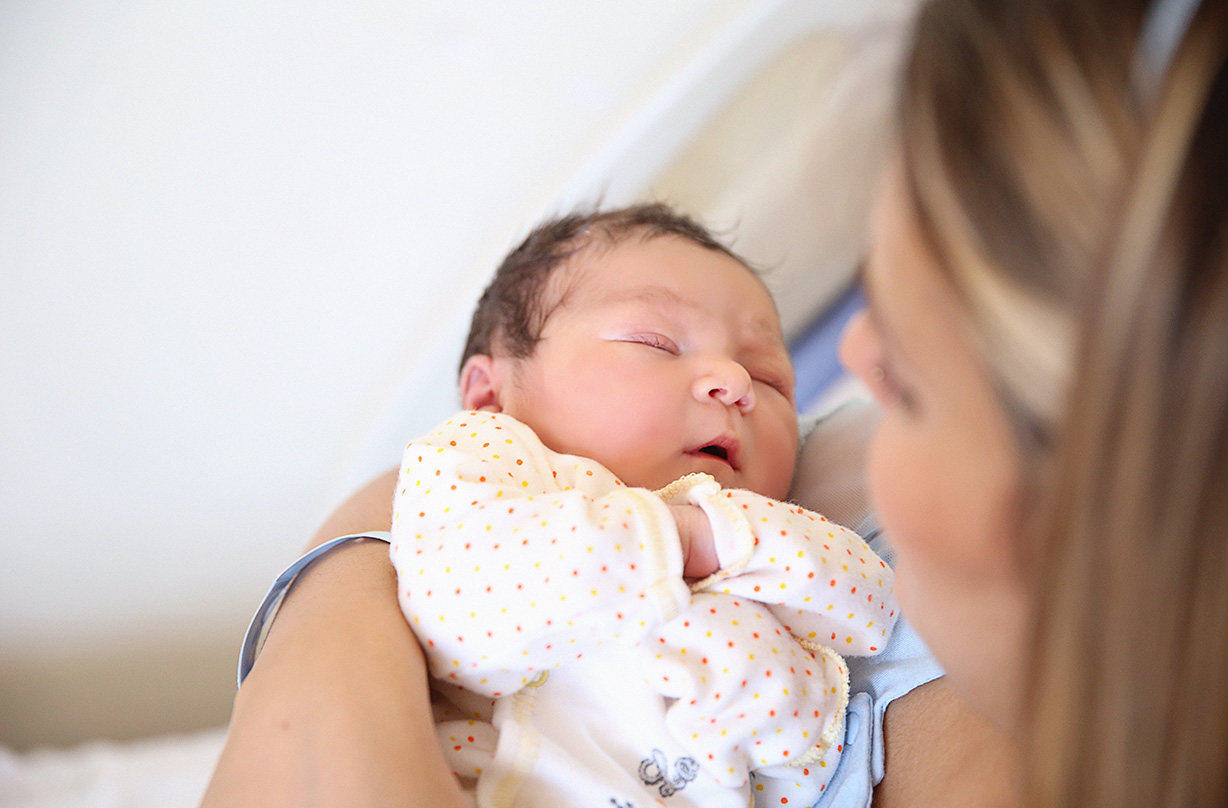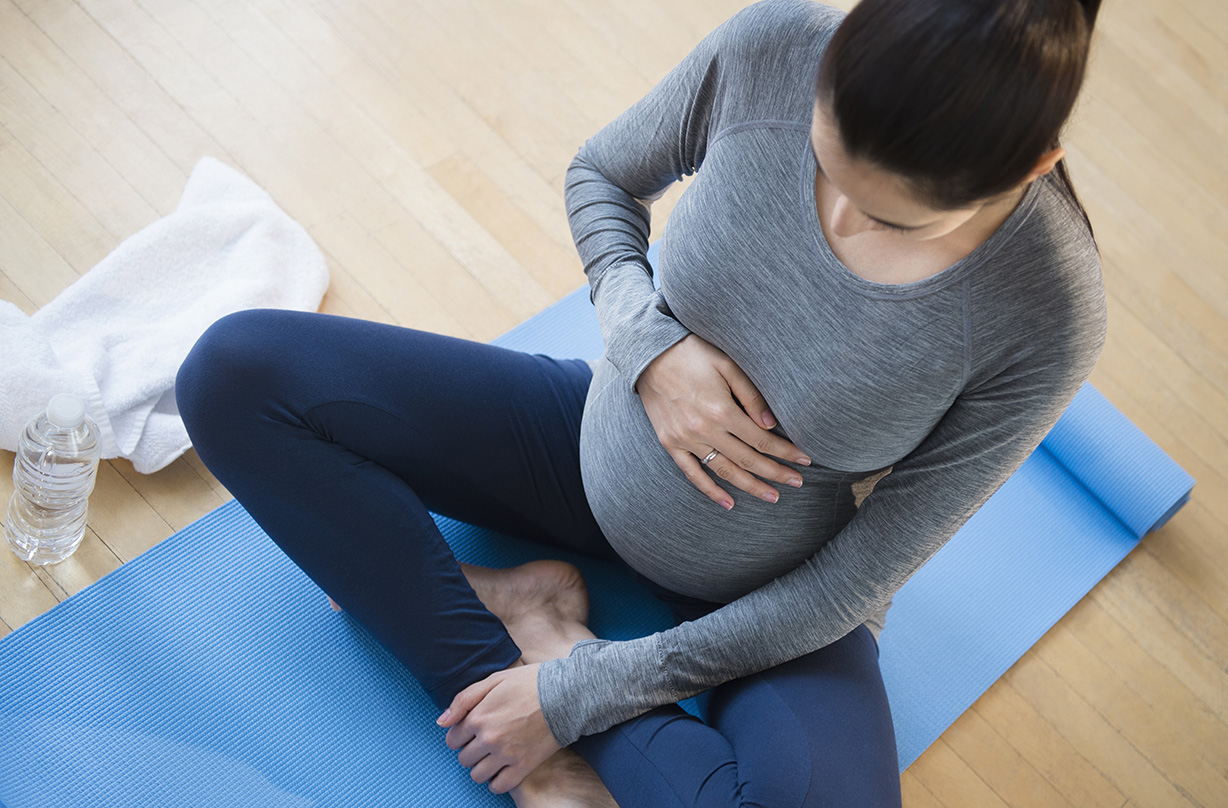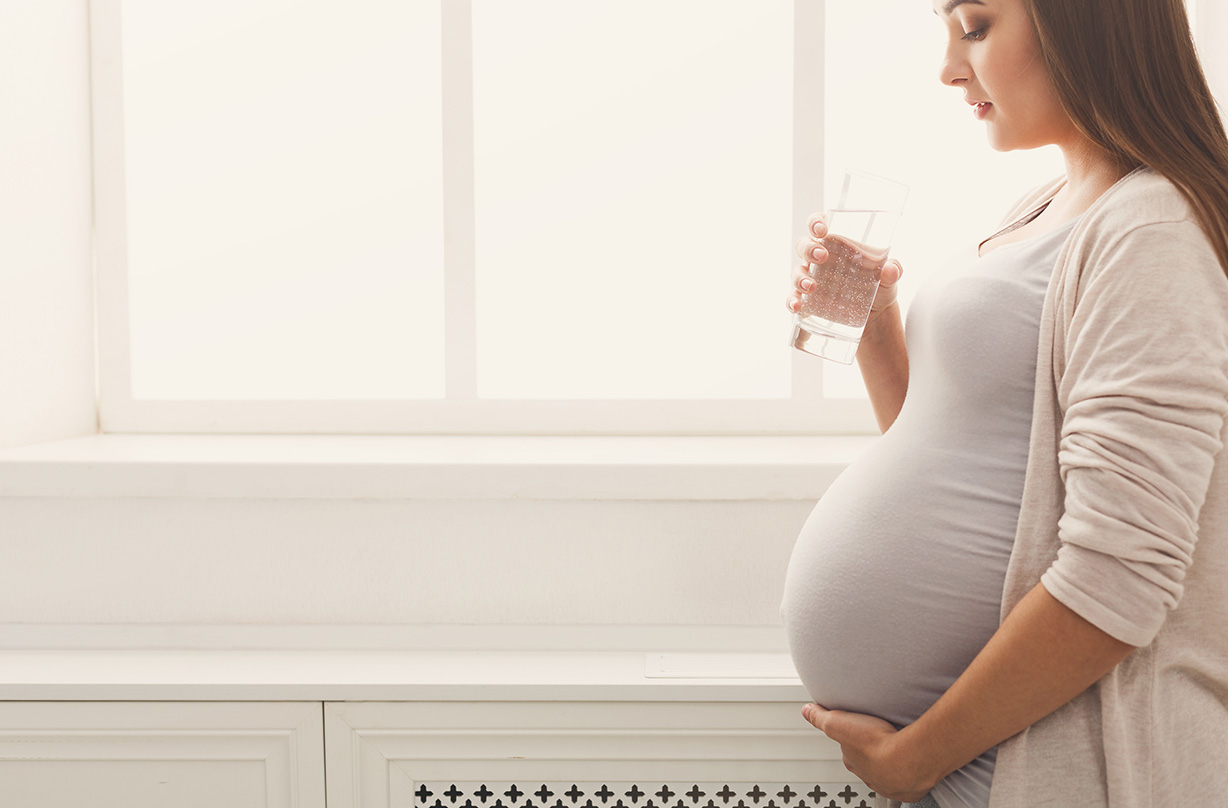Revealed: The 20 ways to have an easy labour (according to a midwife!)
Midwife Anne Richley shares all the insider tips, including the UFO

Midwife Anne Richley shares her 20 ways to help you be as prepared as possible for labour.
Let's face it - for pregnant ladies, the prospect of giving birth can seem scary, it's the unknown. As a new mum especially, you may wonder, can there really be any ways to have an easy labour?
Not only are you on red alert for spotting the signs of labour, but there are the different stages of labour and you've probably heard horror stories about it too. Read on to discover the ways to make labour easier when it does arrive...
20 ways to have an easy labour
1. Getting your baby ready
From around 34 weeks, you can encourage your baby to get into the right position for birth. Try regularly kneeling on the floor over a birthing ball or if you don't have one, use a chair.
'My midwife said to avoid lying on my back and keep my knees lower than my bottom. This would help turn my baby into the correct position for birth,' says Camilla Hicks, 33, mum to Keith, nine weeks. 'I also went swimming once a week. I had no difficulties during labour, so it was definitely worth doing.'
2. Stay focused on coping
One of the best techniques to get through labour is to focus on the fact that you are coping with the situation.
'Pete kept leaving the delivery suite to try and find the doctor, which stressed me out and distracted me far more than the painful contractions,' says Emma Sabine, 29, mum to Danny, nine weeks.
Parenting advice, hot topics, best buys and family finance tips delivered straight to your inbox.
'After I politely asked him to stay in one place, i.e. with me and just hold my hand, I found that I coped with labour much better.'
3. Stay fit and strong
Mums-to-be who are generally fit and healthy tend to have a more straightforward labour.

Try and go for a short walk each day (without becoming short of breath), or ask your midwife about local yoga or aquanatal classes in your area.
4. Massage your perineum
From around 34 weeks, start gently massaging your perineum (the area between the opening of your vagina and your anus) using wheatgerm oil or sweet almond oil, to help prevent tears.
'I was very nervous about tearing, so I massaged my perineum regularly and my husband helped too,' says Victoria Howes, 36, mum to Gaelle, eight weeks.
'During the birth, I felt more confident of my own body's ability to cope and was more relaxed when I pushed. The birth was hard, but luckily I didn't tear.'
5. Keep an eye on the monitoring
Continual monitoring is not recommended in a 'low-risk' labour, as it means you're not able to move around. This can then cause anxiety, slow your labour down and make it more difficult to cope with each contraction.
6. Stay active
If you walk around during labour, you should need less pain relief and are more likely to actually have a shorter labour.

'My husband told me the midwife said that they'd run out of bedpans, so I'd have to get off the bed and walk down the corridor to the loo,' says Lorna Kirk, 21, mum to Caitlin, five weeks.
'I'm not sure if it was true but it did make me walk around more rather than lying down!'
7. A midwife led home birth is possible and safe
Mums to be who have had a straight forward pregnancy and then opt for a homebirth or in a midwife led unit, are known to have fewer interventions and more likely to have a normal delivery.
8. Boost and maintain your energy levels
You use up a lot of during labour, so it's important that you build up your stamina and feed your muscles throughout.
Snacking regularly and drinking plenty can make a massive difference.
'I felt like a little squirrel before hibernation as I arrived at the labour ward with my bag filled with cereal bars!' says Karina Gibson, 36, mum to John, four months.
9. Trust and try hypnotherapy
During hypnotherapy, you'll be taught relaxation, breathing and visualisation techniques. These can help get rid of the fear, tension and pain in labour.
10. UFO
This stands for Upright, Forward and Over - a great position for labour.
If you're having a home birth, stand and lean forward over your kitchen worktop or, if you're in hospital, pile up the pillows on the bed and stand and lean forwards over them.
The baby's head puts pressure on your cervix, which can in turn, make labour shorter and easier.

'I was able to stand for most of my labour, but whenever I got tired, I moved and knelt on the bed, burying my head in the pillows,' says Amie Richards, 28, mum to Tom, 3 weeks.
'As Tom was born, I was still on the bed in the kneeling position and the midwife passed him to me through my legs. It was a wonderful experience.'
11. Consider hiring a doula
Doulas (birth partners who are experienced mothers and offer emotional and practical support during pregnancy and labour) may be a great help.
Benefits can include a shorter labour and fewer painkillers.
12. Great support
Women with good support often cope better in labour and feel their experience of birth was a positive one.
'Mark constantly told me how proud of me he was and how well I was doing during labour. He was full of encouragement,' says Serena Thomas, 29, mum to Iain, seven weeks.
'When friends ask what pain relief I used, I say, 'My husband!'
13. Drink raspberry leaf tea
Drinking raspberry leaf tea can help to prepare your womb for labour. Drink it four times a day after 36 weeks of pregnancy.
Evidence shows that women who drink raspberry leaf tea have shorter labours and need less pain relief.
14. Breathe right
Breathing slowly and deeply helps you relax, helping to prevent tension in your muscles and allowing your cervix to dilate. 'My midwife told me to breathe in and deep with every contraction.

The gas and air helped with this, too. And every time I frowned, my midwife told me to relax my face. It's quite hard to tense your muscles when your face is relaxed!' says Caren Leigh, 30, mum to Mikey, three months.
15. Know your stuff
If you read plenty of pregnancy material (like now!) and have plenty of information to hand, you're much more likely to be able to make decisions about your baby's care and to feel in control of your labour.
16. Take a nap!
During labour, your contractions can often stop when you're fully dilated. If your baby is comfortable and stable, don't feel as if you have to 'hurry things along' with the aid of a hormone drip. Instead, ask the midwife to dim the lights and have a doze, and before you know it you'll get a surge of energy ready for the final run.
'When my contractions ground to a halt, the midwife switched off the lights and left us for a while. I dozed off instantly as I was quite tired, but 10 minutes later I had an overwhelming urge to bear down and 15 minutes later, Michael was born,' says Jo Swain, 25, mum to Michael, four weeks.
17. Water works
Research shows that mums-to-be who use a birthing pool for labour often experience an easier, more relaxed labour.

'The pain was mainly concentrated in my back, but moments after getting into the pool it went,' says Elaine Lau, 31, mum to Euan, five weeks. 'The water was so soothing and relaxing.'
18. Set your own pace
Labour can take quite a while for some women, so don't feel that you have to leap out of bed at 3am to make sure you're 'upright and mobile'. If so you'll be exhausted by the time the action really starts to kick off!
'Every time I went for a lie down, the contractions stopped, and when I stood up, they started again! This was great because it meant that I could really pace myself,' says Simone Janet, 28, mum to Chris, nine weeks.
19. Listen to your body
Many mums-to-be like to think of 'breathing' their baby out. Go with your body.
If everyone is all hyped up encouraging you to hold your breath and 'plush!', you'll only go purple in the face and get exhausted.
Push when you're ready and save your energy in between.
20. Take gentle exercise and climb the stairs
Walking up and down stairs can help your baby to move through the pelvis.
'Every time my contractions came, the midwife got me to go up and down the stairs,' says Julie Faith, 24, mum to Lucie, seven months.
'I could feel my baby's head getting lower, until I just made it back into the lounge and gave birth. It was amazing!'
Video of the Week: